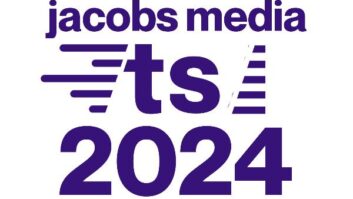An FCC proposal to incentivize broadcast localism by tweaking its internal procedures drew a limited number of comments before the March 11 filing deadline.
The proposal, if ultimately passed, would modify the FCC’s processing policy for applications for renewal, transfer or assignment of license. It would prioritize evaluation of applications from stations that certify that they provide locally originated programming. “These applications would be the first to be reviewed, which would likely result in quicker action and, if the application is granted, quicker approval of these applications,” the commission stated.
The idea hasn’t generated much excitement, except that this also is the proposal that raised Republican eyebrows when it was released in January. As we reported then, language in the NPRM was critical of the FCC’s decision in 2017 — when Republicans were in the FCC majority — to eliminate the main studio rule.
Groups that support a performance royalty in radio told the FCC that the commission is correct to question whether predictions made in 2017 are still correct.
“(T)he commission at the time predicted that its action [i.e., eliminating the main studio rule] would foster creation of more and better local content,” wrote musicFIRST and the Future of Music Coalition in joint comments. “Since the elimination of the rule, we have observed a trend in commercial FM radio of a general decrease in localism rather than an increase, both with respect to music programming as well as news and information.
“This apparent decrease in localism appears to have coincided with increases in local utilization of syndicated radio programming, remote voice-tracking and decentralization of music programming in commercial radio.”
The National Association of Broadcasters has not filed an official response, but in an ex-parte filing the association noted that broadcasters already have every incentive to produce locally-oriented content.
“Offering local content is a competitive advantage over the plethora of nationally-focused content throughout the marketplace,” NAB wrote, recapping a meeting with representatives of Commissioner Anna Gomez’s office. “Those radio and television stations able to provide locally-originated programming already do it. The barrier to initiating or expanding local content is that producing such content is generally very expensive.”
The NAB concluded that establishing a “carrot” in the form of change to how certain complex applications are processed for certain stations will not address the fundamental challenges affecting broadcasters who would like to expand local program production.
The FCC says it does not propose to offer priority application review to applications filed for radio translators or boosters. The commission says a station’s participation in certifying for prioritization would be voluntary. “A station may choose whether it wants to provide the additional information to qualify for prioritized review of its application and, should it decline to, would have its application processed pursuant to its normal procedures.”
Comment from broadcasters have been limited so far, without filings by major commercial radio groups.
National Public Radio told the FCC it generally supports the commission’s proposal to promote locally originated programming. “With the continued decline of local newspapers, broadcasters are seen more than ever as essential, trusted, local news providers,” NPR commented, “and no one can disagree that providing local communities with information about the events and issues that directly impact them is a public good that should be supported. However, as to public radio, the incentive offered in the NPRM is weak.”
Community radio advocate REC Networks says in its comments “the proposal is ambitious, but not practical.” Other entities submitting comments include Common Frequency, Bible Broadcasting Network and Educational Media Foundation.
Separately, Washington attorney David Oxenford wrote in his Broadcast Law Blog that the NPRM suggests that the decision to drop the main studio rule may have been “wrongly made, and alleges that the 2017 decision did not serve what the majority said was its purpose — promoting more local programming.” But although the NPRM second-guesses the 2017 decision, Oxenford wrote, it also acknowledges that the commission has held that local programming is not necessary to serve the public interest.
Reply comments on the FCC’s NPRM (MB Docket No. 24-14) on broadcast localism can be filed through April 8 at the FCC’s website.









